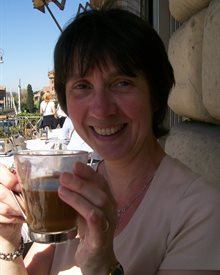Henrietta Lockhart
 I am Collections Officer for Winterbourne House and thus the curator of all the historic collections and archive collections that we have at Winterbourne. The historic collections include objects that are connected to the original family who lived here, as well as contextual objects that are here to give the impression of early 20th century life. The archive collections include letters, diaries, photos and documents relating to the families which have lived here. I also organise temporary exhibitions and I led on the process of getting Winterbourne accredited as a museum, which happened in 2017.
I am Collections Officer for Winterbourne House and thus the curator of all the historic collections and archive collections that we have at Winterbourne. The historic collections include objects that are connected to the original family who lived here, as well as contextual objects that are here to give the impression of early 20th century life. The archive collections include letters, diaries, photos and documents relating to the families which have lived here. I also organise temporary exhibitions and I led on the process of getting Winterbourne accredited as a museum, which happened in 2017.
When I first became aware of my sexual orientation, I was an ordained member of the Church of England. That was quite difficult for me as a lesbian in the late 1980s. Attitudes were not as open as they are now. Since that time, I have moved on to other jobs and I have always been open about my sexual orientation.
There has definitely been a change of attitudes over the years. The most obvious change is civil partnership and gay marriage. I have been with my partner since 1988 and in 2006 we had a civil partnership. We never thought in our lifetimes that we would be able to do that. On the other hand, I think we can’t be complacent about those changes, because there are still areas within our society where it is extremely difficult for people to be out.
I think It is important that people see role models. Some people find it very easy to be open. I do find it easy, having worked in the Arts for a long time, where there is very little prejudice, very little difficulty about being out. But for people who come from societies where it is not possible to be out, or from parts of our own society where it is difficult to be out, it is really important to see that there are people out there doing all sorts of different roles who are gay and are prepared to be open. I don’t think that people have to reveal their sexual orientation in their workplace if they do not want to. But I think it is very beneficial if people are open, because it supports other people and helps non-LGBT people recognise how many LGBT people there are.
I have certainly never felt this University not to be LGBT friendly. I find it a very supportive institution. If I had to convey a message to new LGBT staff joining the University, I would tell them that they are welcome and I would encourage them to maintain contact with the Rainbow Network, because it is there for them.